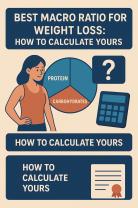Will you have withdrawal bleed with Nexplanon?
Nexplanon is a hormonal contraceptive implant that releases the progestin hormone etonogestrel into the body. One of the common side effects of Nexplanon is changes in menstrual bleeding patterns, and many users experience a reduction in the frequency and intensity of menstrual bleeding.
The term "withdrawal bleed" is often associated with combined hormonal contraceptives, such as birth control pills, which have both estrogen and progestin. During the placebo or pill-free week in the pill pack, hormonal levels drop, leading to a withdrawal bleed that mimics a menstrual period.
However, Nexplanon, being a progestin-only contraceptive, does not have a pill-free week, and users typically do not experience a withdrawal bleed in the same way as with combined contraceptives. Instead, many individuals using Nexplanon may experience changes in their menstrual bleeding patterns, including:
Lighter or Absent Periods: Some users may experience lighter or absent periods over time.
Irregular Bleeding: Menstrual bleeding may become irregular, with unpredictable timing and duration.
Spotting: Some users may experience occasional spotting between periods.
It's important to note that individual responses to Nexplanon can vary. While some individuals may experience significant changes in menstrual bleeding, others may have minimal changes or continue with regular menstrual patterns.
If you have concerns about your menstrual bleeding patterns while using Nexplanon or if you experience any unexpected changes, it's advisable to consult with your healthcare provider. They can provide personalized guidance, address your concerns, and ensure that Nexplanon continues to meet your contraceptive needs. Additionally, if you have questions about the specific effects of Nexplanon on your menstrual cycle, your healthcare provider can offer more detailed information based on your medical history and individual circumstances.
Will the use of Nexplanon lead to withdrawal bleeding?
Nexplanon is a long-acting, reversible contraceptive implant that releases a steady dose of the progestin hormone etonogestrel. Etonogestrel works by thickening the cervical mucus and thinning the endometrial lining, making it difficult for sperm to fertilize an egg and for an embryo to implant.
Nexplanon can cause a variety of menstrual changes, including irregular bleeding, spotting, and amenorrhea (absence of menstruation). Withdrawal bleeding, which is the bleeding that occurs when a woman stops taking hormonal birth control, is not common with Nexplanon. This is because Nexplanon does not suppress ovulation, but instead prevents pregnancy by creating a hostile environment for sperm and embryos.
However, some women may experience withdrawal bleeding with Nexplanon, especially in the first few months of use. This is because their bodies are adjusting to the consistent dose of progestin. Withdrawal bleeding with Nexplanon is typically light and short-lived, and it usually subsides within a few months.
What factors influence the likelihood of experiencing withdrawal bleeding with Nexplanon?
A number of factors can influence the likelihood of experiencing withdrawal bleeding with Nexplanon, including:
- Hormonal history: Women who have previously experienced irregular bleeding or withdrawal bleeding with other hormonal birth control methods are more likely to experience withdrawal bleeding with Nexplanon.
- Length of use: Withdrawal bleeding is more likely to occur in the first few months of Nexplanon use. As the body adjusts to the consistent dose of progestin, withdrawal bleeding usually subsides.
- Stress: Stress can disrupt menstrual cycles and increase the likelihood of breakthrough bleeding and spotting. This is true for all hormonal birth control methods, including Nexplanon.
How does Nexplanon affect menstrual cycles?
Nexplanon can cause a variety of menstrual changes, including:
- Irregular bleeding: Nexplanon can cause irregular bleeding, including spotting, breakthrough bleeding, and amenorrhea.
- Spotting: Spotting is light bleeding that occurs between menstrual periods. It is the most common menstrual change with Nexplanon, occurring in up to 50% of users.
- Breakthrough bleeding: Breakthrough bleeding is heavier bleeding that occurs between menstrual periods. It is less common than spotting with Nexplanon, occurring in up to 20% of users.
- Amenorrhea: Amenorrhea is the absence of menstruation. It occurs in up to 10% of Nexplanon users.
Most women experience a decrease in menstrual bleeding over time with Nexplanon use. By the third year of use, up to 60% of women will experience amenorrhea.
If you are concerned about any menstrual changes while using Nexplanon, talk to your doctor. They can help you to determine if the changes are normal and if there is anything you can do to manage them.












